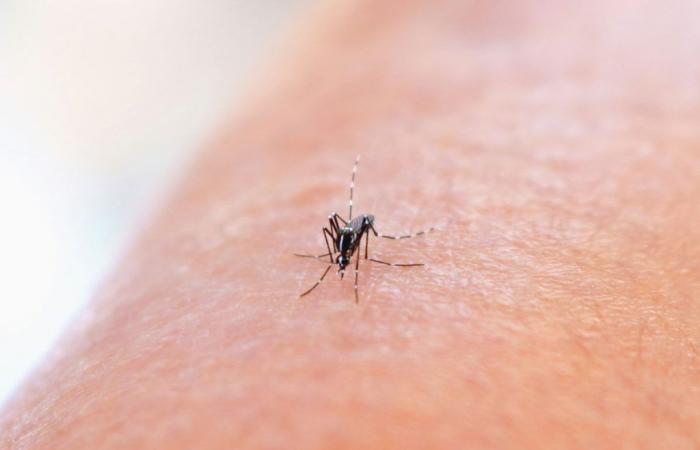A new study suggests that dengue infection is associated with a short- and long-term increase in the risk of depression.
The study, which draws on medical records of nearly 50,000 people diagnosed with dengue fever in Taiwan, adds to growing evidence that the dengue virus can cause persistent illness in some of the people who are infected with it.
Dengue fever is transmitted through the bite of infected female mosquitoes and causes an illness that resembles the flu, and can sometimes be fatal. However, many people experience only mild symptoms or no symptoms at all.
Previous research suggested that some subjects might experience headaches, rashes and chronic fatigue well beyond the acute phase of the disease. “These prolonged symptoms triggered by infection may contribute to the development of long-term depressive disorders,” note Dr. Hsin-I Shih and colleagues at National Cheng Kung University in Tainan, Taiwan, who led the new study. .
But while some previous studies had established a link between dengue and the onset of depressive and anxiety disorders in the short term, its longer-term effects on mental health were less clear.
To determine whether subjects who had had dengue fever were more likely to develop anxiety, depressive disorders, or sleep problems in the months or years following infection, Shih and colleagues analyzed the medical records of 45 334 dengue patients diagnosed between 2002 and 2015, as well as the records of 226,670 other uninfected patients
The research, published in PLOS Neglected Tropical Diseasesrevealed that dengue patients were more likely to develop depressive disorders following infection: whether less than 3 months, 3 to 12 months or more than 12 months after infection. The median duration of follow-up for all study patients was 3.3 years.
The risk of sleep disorders is also high in the 3 to 12 months following infection, but researchers did not observe at any time an increased risk of anxiety in patients who had had dengue.
But when they analyzed the records of the subgroup of 15,542 (34%) dengue patients whose infection had been severe enough for them to be hospitalized, the researchers found an increased risk of anxiety problems. during the first three months of infection and a high risk of sleep disturbances during the first 12 months. They also found an increased risk of depression, regardless of the period considered.
According to the researchers, these results indicate that dengue may have repercussions on mental health, but further research is needed to understand the mechanisms underlying this association.
It is possible that the persistence of other symptoms, or the trauma caused by hospitalization, contributes to depression. It is also possible that the virus directly affects the brain. “We can draw a parallel with another member of the flavivirus family, namely the West Nile virus (or West Nile virus)” say the researchers.
“Depression following West Nile virus infection has been documented in the United States, with some patients reporting depressive symptoms even a year after contracting the infection. Knowing that the virus responsible for dengue is also part of the flavivirus family, it can reasonably be assumed that affected patients may develop psychiatric disorders following infection. »






